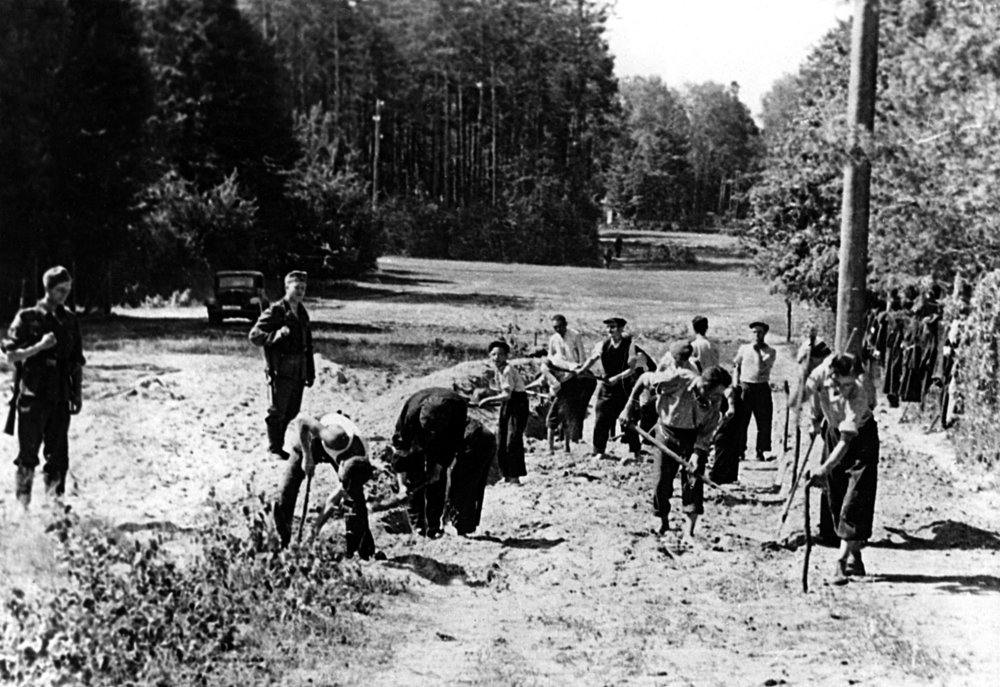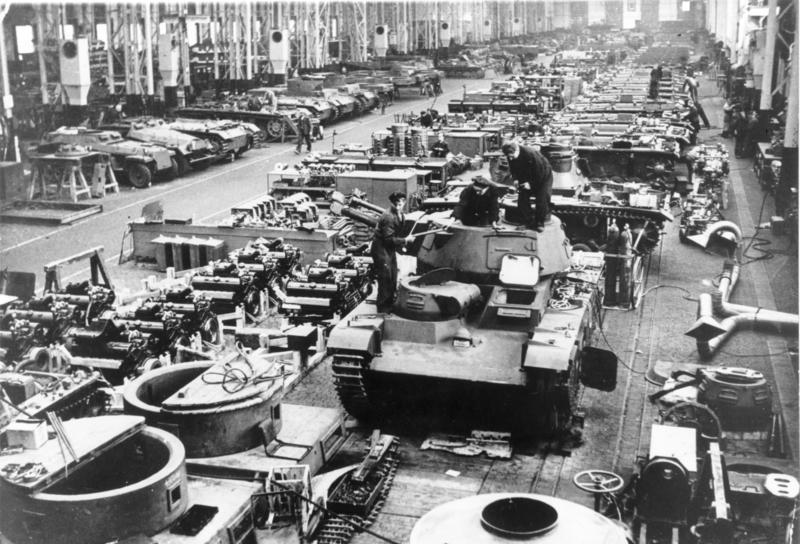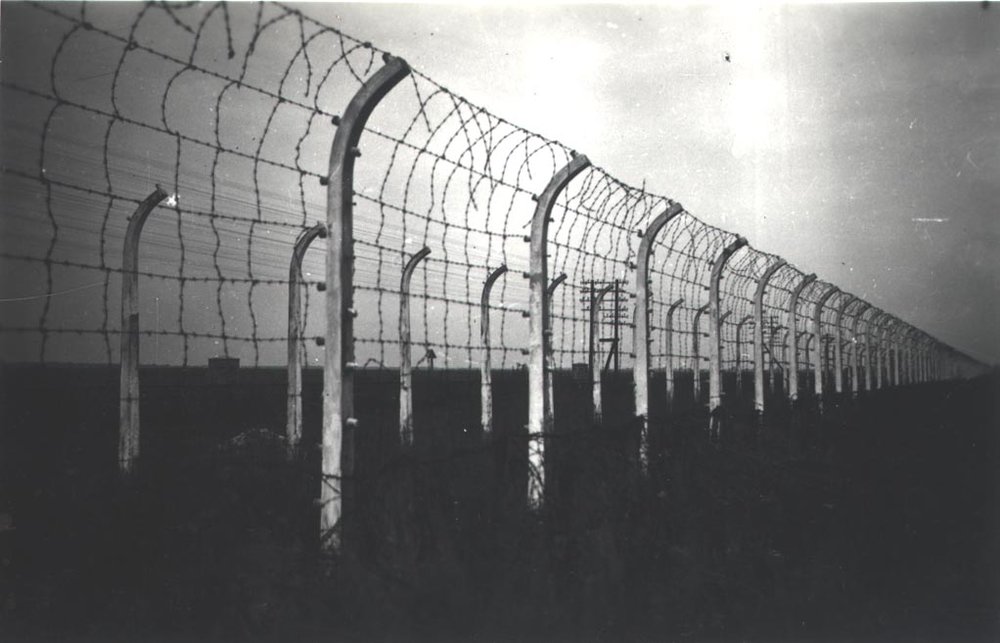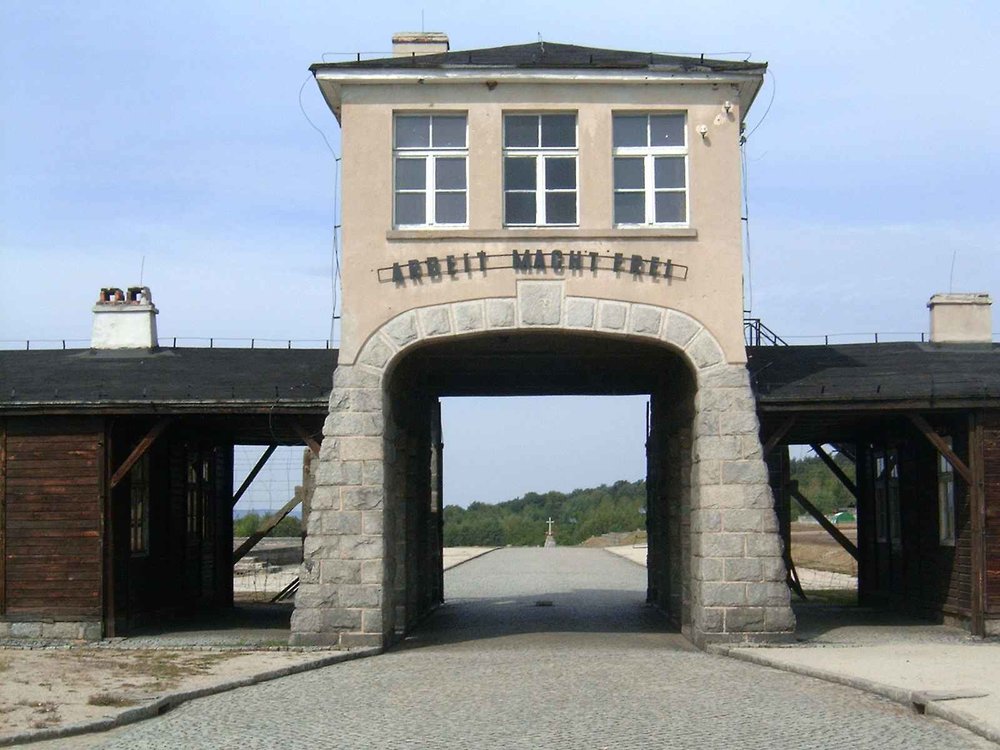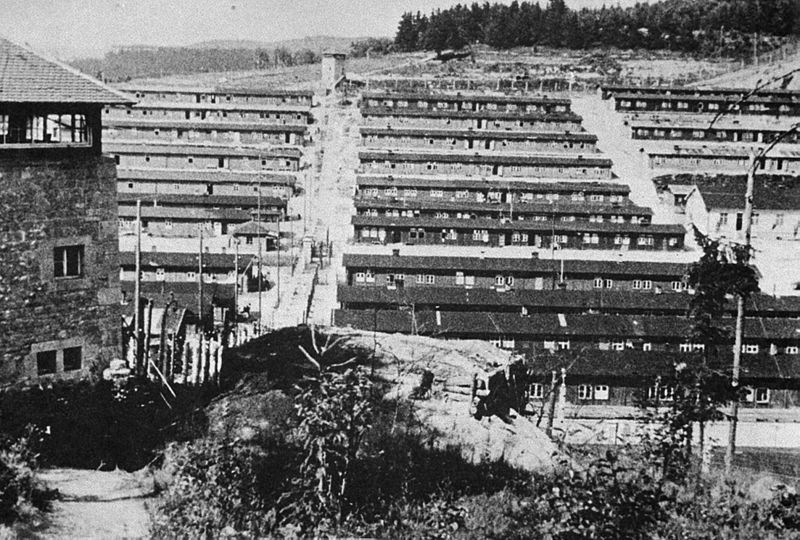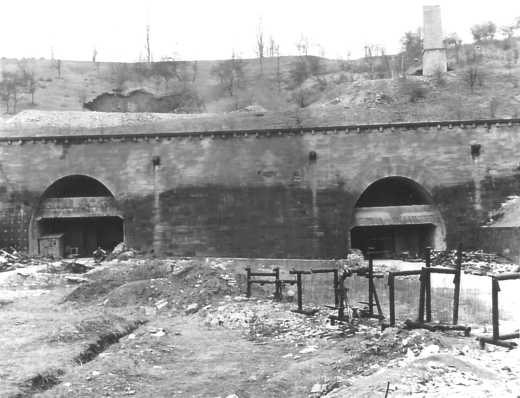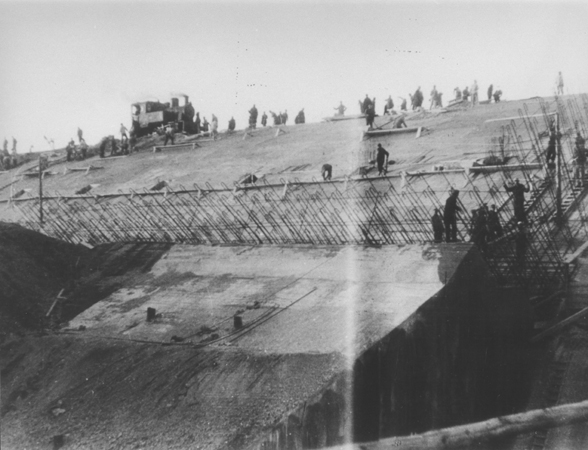EXCERPT FROM THE LONG NIGHT
“I want to go into more detail about the overall circumstances in Märkstadt Camp, and especially the relationships between the prominent camp officials and the inmates. It was already my second year in the camp and I had acquired a good understanding of how the camp hierarchy functioned. About a hundred people worked as camp officials, some of whom were numbered among the “Prominenz” (prominent camp officials) who worked for the Jewish Elders as well as the camp leaders and supervisors.
The camp personnel consisted of kitchen workers who prepared food for the supervisors in a special kitchen, kitchen porters who were in charge of the transport of groceries, shoemakers, toilet attendants, carpenters, etc. These “Prominenz” who worked within the confines of the camp were in every way favoured. They only started work at seven o’clock in the morning. The working columns marched the long way to their worksite in storms, rain and snow, and were already often browbeaten and exhausted from the march. When they arrived at their destination, the camp officials were still sitting and enjoying their breakfast, where they did not even lack for jam and sugar – things which for most us were unknown for so long.
For lunch, the “Prominenz” often received double portions and even scooped out the nourishing residue from the soup kettles. They often finished their work during the afternoon. Then they were free to bathe or attend to their clothes and laundry. They wore highly polished leather boots to signify their position. How different were the lives of the masses of inmates!
Although the workers on the building site undertook an unfair and very heavy burden of work, they were fed only a thin soup and they hungered for bread. Despite the debilitating twelve hour work shifts they received nothing more. Every evening, when they were utterly exhausted by their labours, they still had to “march” back to the camp, and even then they sometimes had to queue for hours for their portion of “soup”. Often wagons loaded with goods for the construction firms had to be immediately unloaded. Even though they were exhausted to the point of collapse, they would often be rudely awakened from their slumbers, driven out of their huts, and forced to work through the night. They also had to work unloading wagons, even on Sundays.
In marked contrast, the “Prominenz”, who were fit and well-fed, were never compelled to do additional work. The masses had to be available for work at all times, they were not allowed any respite, even on Sundays. A similar number of “Prominenz” were to be found at the construction site. They included the Group Elders, foremen, medical orderly, the managers of the building project and a few people who worked for them. The “Prominenz” who worked on the building site had contacts with foreign workers and Germans with whom they conducted a flourishing barter trade. Occasionally they even received alcohol and chocolates from English and French prisoners. Cigarettes and tobacco were always available. The easier work, the good food and the opportunity to keep oneself clean enabled the privileged to look fit and in good health. At all times there was a friendship and fellowship that embraced all the satiated and prosperous “Prominenz” on the building site. They were extremely anxious to distinguish themselves from the dispossessed masses at all times. Gradually my eyes were opened: we had been misled by assurances that everyone in the camp would be treated the same, and that those who worked harder would receive more and better food. In fact, the opposite was the case.
The hard labourers were woken at the crack of dawn each day and had to make their arduous way to the work place. Not only did they have to undertake heavy labour under crude supervision, they were scornfully abused as they were forced to unload wagons, they were given only the thinnest soup. They were robbed of the possibility to receive “presents” and the opportunity to “organise” or barter for essential foodstuffs.
Those who got up and went to work later did not have to rush and work so hard. They received good food to excess, they had access to such things as tobacco, and were able to keep themselves clean. They were spared extra work and were even able to befriend girls who smuggled food for them which they obtained from the German staff’s kitchens. There were about a hundred women who lived in their own barracks, separated from the rest of the camp by barbed wire. They worked mainly in the kitchens and laundry for the camp personnel and supervisors. Ordinary inmates were threatened with punishment if they even approached the women. The “Prominenz” found many ways and means to help each other. Many had girlfriends who they were able to meet in secret.
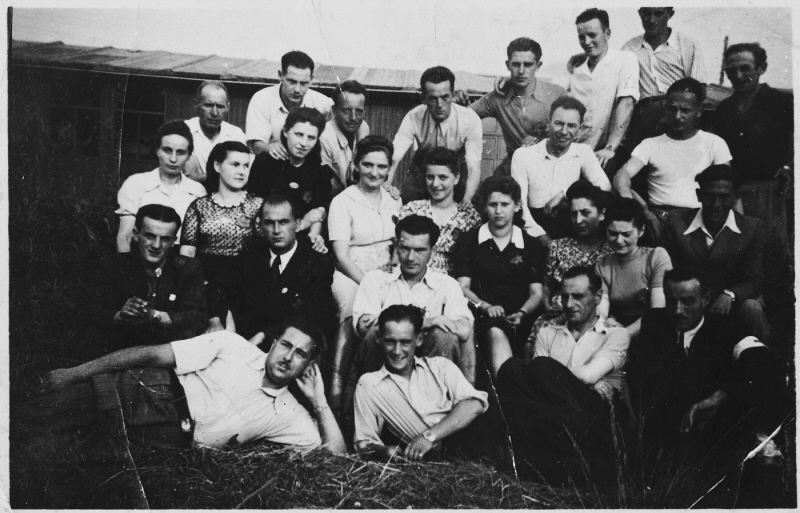
Prisoners at Märkstadt camp c. 1942. Perhaps these were the Prominenz? [USHMM courtesy Sam and Helen Bronner]
There were some who were neither “Prominenz” nor the dispossessed. They were something between the two; they undertook less arduous work and did not go hungry. However, they did not enjoy the authority of the “Prominenz” and so were dependent on their patronage. Prisoners in this category obtained bread and luxury items such as soap, alcohol, tobacco and chocolate to bribe the camp “Prominenz”. I was a member of this intermediate category. I had connections with the “Prominenz” because I could obtain such things, so I had opportunities to seek their favours. When my friends advised me to change my workplace, they also put in a good word with the Group Elders.”

